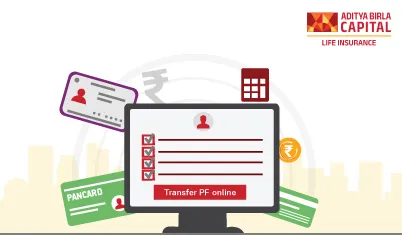Tax Saving Schemes & Investment Plans

Plan Smarter, Live Better!


- Table of Contents
Tax Saving Schemes & Investment Plans faqs
Paying less tax on a higher income involves strategic tax planning and making the most of the deductions and exemptions available under the Income Tax Act. Here are some strategies:
a. Invest in Tax-Saving Instruments: Utilise the ₹1.5 lakh limit under Section 80C by investing in PPF, ELSS, NSC, 5-year tax-saving fixed deposits, and life insurance premiums.
b. National Pension System (NPS): Contribute to NPS under Section 80CCD(1B) to claim an additional deduction of ₹50,000 above the 80C limit.
c. Health Insurance Premiums: Claim deductions under Section 80D for health insurance premiums paid for yourself and your family, including your parents, which can also increase your tax savings.
d. Home Loan: If you have a home loan, claim deductions on the interest paid under Section 24 and on the principal repayment under Section 80C.
e. Education Loan: Interest paid on education loans is deductible under Section 80E, with no upper limit, for 8 years.
f. Charitable Donations: Donations made to specified funds and charitable institutions can be claimed as deductions under Section 80G.
g. Rental Expenses: If you receive HRA as part of your salary and pay rent, claim an HRA deduction. If you don’t receive HRA, you might still claim rent paid under Section 80GG.
h. Maximise Allowances: Certain allowances like transport allowance, education allowance for children, and uniform allowance are exempt from tax to a certain limit.
To save more tax on your salary, efficiently utilise the exemptions and deductions provided for salaried employees:
a. Fully Utilise Section 80C: Invest in instruments like ELSS, PPF, life insurance, and others that fall under this section.
b. Claim HRA: If you pay rent and receive HRA, make sure to claim this exemption based on rent paid, salary components, and location.
c. Opt for NPS: Additional contributions to NPS provide extra tax savings beyond the 80C limit.
d. Education Loan Interest: Deduction under Section 80E for the interest paid can significantly reduce taxable income.
e. Maximise Section 80D: Invest in health insurance for yourself and your family, including your parents, for higher deductions.
In India, you can avail of several tax exemptions, including:
a. House Rent Allowance (HRA): For individuals paying rent.
b. Leave Travel Allowance (LTA): Exemption on travel expenses while on leave from work, applicable twice in a block of four years.
c. Standard Deduction: A flat deduction allowed from the salary income.
d. Long-Term Capital Gains (LTCG) Exemption: LTCG from equity investments is tax-free up to ₹1 lakh per annum.
Certain deductions do not require receipts to claim, including
a. Standard Deduction: For salaried employees and pensioners, a standard deduction of ₹50,000 is allowed without any receipt.
b. Deductions under Section 80TTA: Interest on savings accounts up to ₹10,000 can be claimed without receipts.
c. Section 80GG: For those paying rent but not receiving HRA, subject to conditions and submission of Form 10BA.
d. Section 80TTB: Senior citizens can claim a deduction on interest income from deposits up to ₹50,000 without specific receipts.
e. Section 80E: Interest paid on education loans does not require receipts for claiming deductions but having a statement from the bank can be helpful for records.
Remember, while receipts might not be needed for these claims, maintaining documentation or bank statements that support your claim is advisable in case of scrutiny from the Income Tax Department.
Buy ₹1 Crore Term Insurance at Just ₹575/month1
ABSLI DigiShield Plan
Life cover up to 100 years of age.
Joint Cover Option
Inbuilt Terminal Illness Benefit
Tax Benefit^
Return of Premium Option~
Life Cover
₹1 crore
Premium:
₹575/month1
Most Popular Calculator
* Tax benefits are subject to changes in tax laws. Kindly consult your financial advisor for more details.
ADV/5/24-25/448







